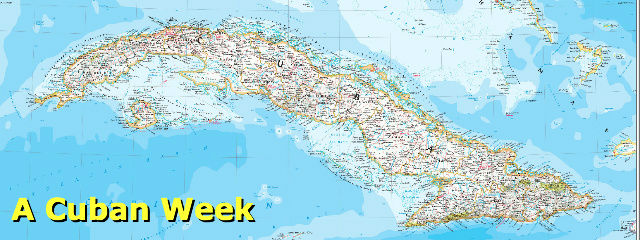Farm Bureau’s Randy Veach: Cubans Want Arkansas Agricultural Exports
by September 30, 2015 8:01 am 301 views

Editor’s note: Arkansas Farm Bureau President Randy Veach, a cotton, soybean, rice and corn farmer from Manila (Mississippi County) is among the business leaders who joined Arkansas Gov. Asa Hutchinson on a trade mission to Cuba. Below is a brief discussion by Veach of his time thus far in Cuba.
We have had a productive first two days in Cuba. It is very clear to me that we must move forward on normalizing trade relations with Cuba. Gov. Hutchinson gave a great speech our first day here, and he declared that we should be looking ahead with Cuba, and not looking in the rearview mirror. I thought his speech was very well-received.
It is clear, too, that Cuba wants to do more to attract foreign investment. In fact, they announced a program to “guarantee” the value of investments made in the country.
We have had some productive meetings in which I have been fortunate to participate, including a meeting with the ministry of foreign trade and investment for North America, the Director of Trade for poultry, beef and pork, and the Ministry of Foreign Affairs counselor.
Along with Dr. Donald Bobbit from the University of Arkansas System, Dr. Mark Cochran, vice president of agriculture for the UA, and Wes Ward, our secretary of agriculture, I was able to tour Cuba’s agriculture college.
There we met with animal science professors and discussed their poultry research, dairy research, duck, geese and pork research. Then we met with professors doing research on rice, feed grains and soybeans. There is a great opportunity to exchange ideas on agricultural research. The Cubans can’t raise enough food to feed their people, and there is an opportunity for Arkansas to help in so many ways.
When we met with Alejandro Mustelier Jamora, the “main man” for Alimport, the import-export company run by the Cuban government, we had industry leaders from Tyson, Simmons Foods, Riceland, Keith Smith Company and also the timber industry. Alejandro said we had the highest quality rice in the world and liked our poultry. But because of the embargo (everyone in Cuba calls it the blockade, by the way) they don’t have open access to those products. But they want them, obviously.
Overall, from what I have seen in Havana, the living conditions are poor, with little opportunity for families to better their lifestyle. They have to improve their economic situation. We went into a local grocery story that was only about 60 percent stocked. That is why they are eager to encourage foreign investors to partner with them.
I’ll have more for you tomorrow. Calls are $3.00 per minute!
